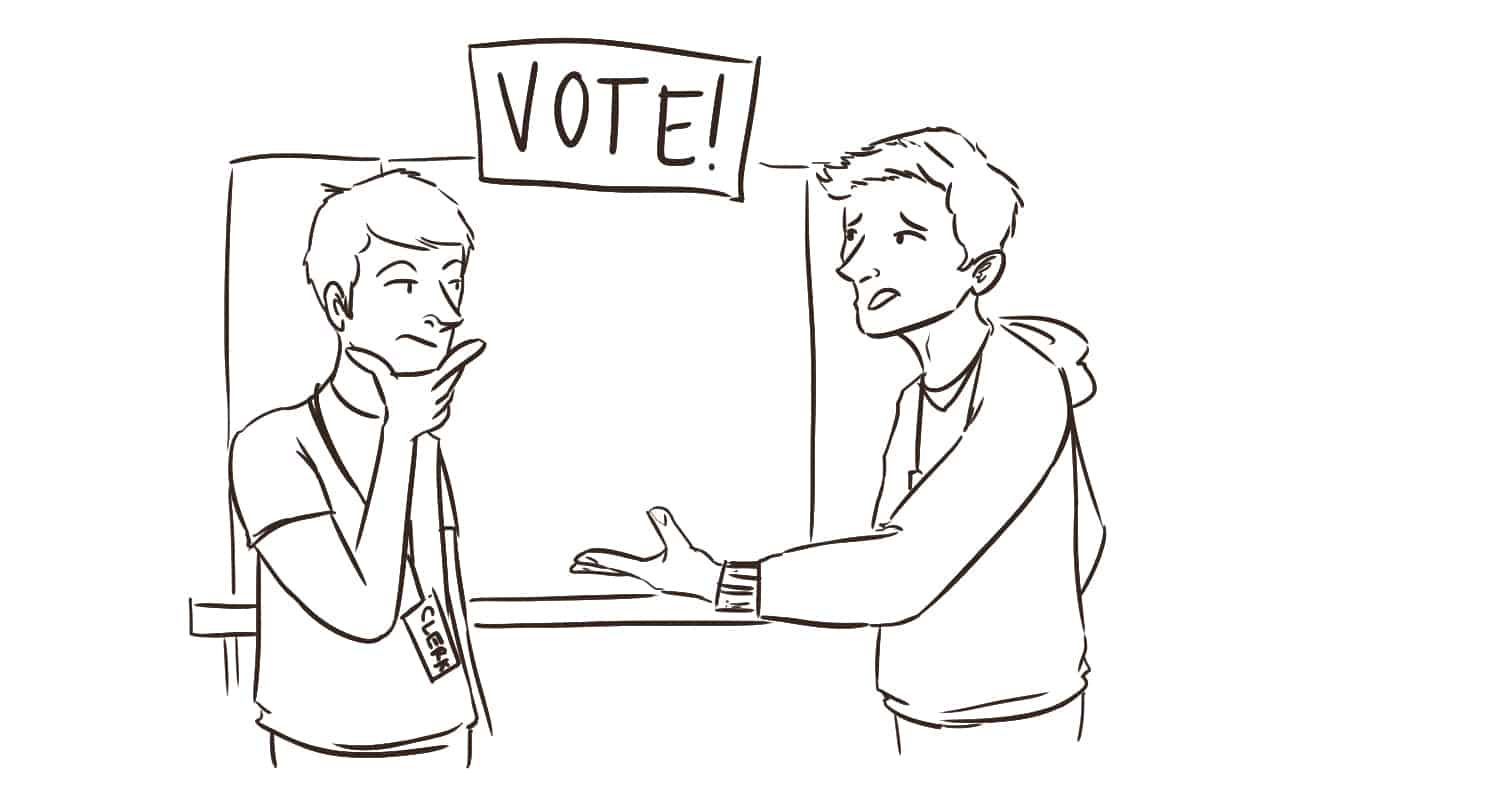The Canadian Federation of Students (CFS) and the Council of Canadians are continuing their opposition to the Fair Elections Act, which both organizations argue will create further barriers to voting for Canadian citizens. An injunction hearing was held on the second and third of July at the Ontario Superior Court of Justice to overturn the provision in the act that eliminates voter information cards (VICs) as acceptable forms of identification.
The Fair Elections Act was granted Royal Assent in June 2014 and injunction was filed for in March 2015. The argument is that the provision will disenfranchise thousands of Canadians from voting, especially post-secondary students, Aboriginal people, seniors, and the homeless, as they are the least likely to have valid documentation of a current address.
62 per cent of students who had the option used voter information cards as official ID in the 2011 federal election.
Maude Barlow, national chairperson of the Council of Canadians, believes that without valid ID, people will be discouraged from taking part in the democratic process.
“In the 2011 election, only 39 per cent of people between 18 and 25 voted. I fear the level will continue to drop,” she states.
The Conservative government argued in court that the reinstatement of voter identification cards would increase the number of fraudulent voters or instances of fraudulent votes.
“Federal council relied on a very small number of cases to make the link between the VICs and voter fraud, however all of those instances cited a mistake in the system which has since been corrected by Elections Canada,” said Bilan Arte, national chairperson of the CFS.
“The lawyers for the government were unable to come up with any serious proof of voter abuse using VICs,” added Barlow. “Nor could they explain why, if there were indeed problems with VICs as identification and the former vouching rules, Elections Canada wanted to extend their use in the 2015 election.”
In order to implement the necessary changes, the CFS hopes to receive a decision by the judge on July 20. If approved in court, the use of VICs will only apply to the upcoming election.
Without VICs, students may prove their address by either providing two authorized pieces of identification and having a fellow elector vouch for their address, or by having a signed letter of residency if they are housed in a campus residence.
“That’s why we’re doing the work over the last two days because those systems are quite difficult to navigate and frankly unnecessary when you have a system that has worked and is proven to work in our last federal election,” explained Arte.
The CFS and the Council of Canadians will continue working together to fight additional provisions, including the restrictions Elections Canada has to informing the public, and stripping the Commissioner of Elections Canada of the ability to investigate electoral fraud.
“We intend to go ahead with a Charter challenge,” said Barlow. “The reason for this injunction request is that the case is not likely to come up before the next election and we want people to vote. But we fully intend to fight the larger set of concerns we have about this voter suppression legislation in court.”
Outside of the hearing, CFS’s campaign “It’s No Secret” hopes to make information about the electoral system relatable and accessible to students. “Regardless of what happens we’re working very closely with our members to ensure that that young people can be game changers and that we do see a high youth and student voter turnout and the re-prioritization of post-secondary issues and issues that affect youth in the upcoming election,” said Arte.


